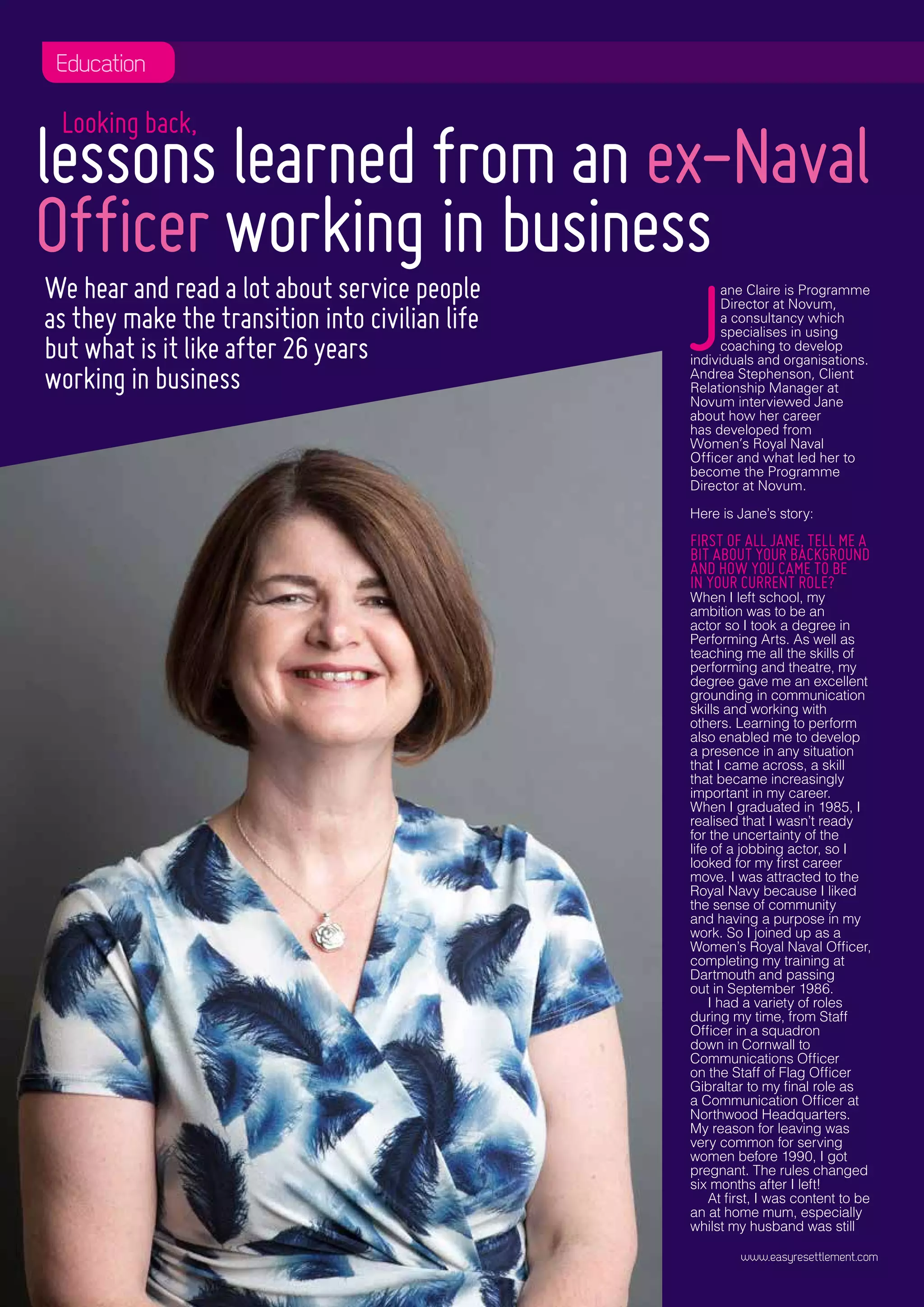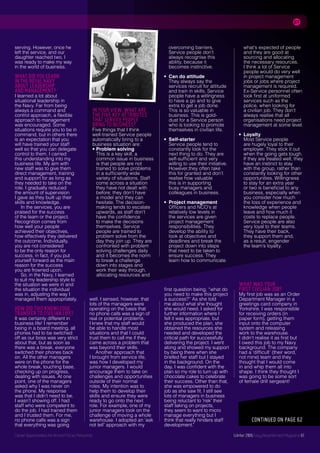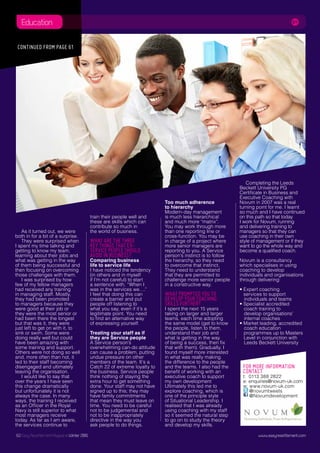This document summarizes an interview with Jane Claire, Programme Director at Novum, about her career path from the Royal Navy to business.
Some key points:
- Jane joined the Royal Navy after graduating with a degree in Performing Arts, wanting purpose in her work. She held various roles over 10 years before leaving when she got pregnant.
- In the Navy, she learned situational leadership and a flexible management approach. She was praised for her team's success rather than individual accomplishments.
- Her first civilian job was as an Order Department Manager, which she owed to skills learned in the Navy like problem-solving.
- Jane believes ex-military bring valuable skills to business like problem-solving,


